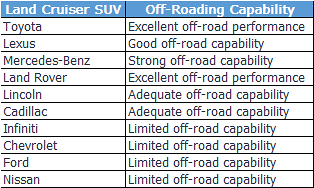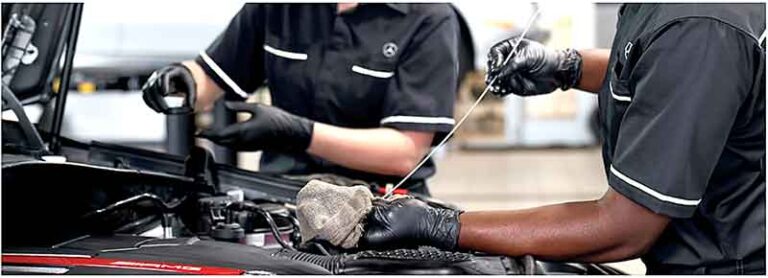Can A Leaking Valve Cover Gasket Cause Rough Idle?
Have you ever encountered your car not working hard and wondered about the possible causes? A rough idle can be frustratingly annoying for any car owner, as it often indicates an underlying engine performance problem It’s that annoying feeling you get when your car’s engine doesn’t run as smoothly as it should, causing vibration appearance and strange noise.
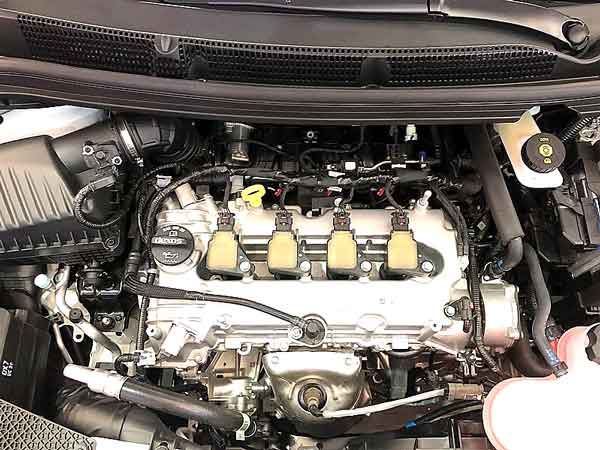
While a variety of factors can cause a tight shutdown, one often overlooked culprit is a leaking valve cover gasket. Typically made of rubber or corrugated iron, this low profile plays an important role in improving the quality of your engine. Its primary function is to seal the gap between the valve cover and the cylinder head, preventing the leakage of engine oil.
But how can this seemingly innocuous gasket cause a tight seal? To answer this question, let’s embark on a journey into the complex world of engine engineering. We will examine the role of the valve cover gasket in detail, reveal why it can leak, and reveal the events that can lead to uneasy downtime so, fasten your seat belt and unravel this automotive mystery into the engine bay Let’s dive in.
The Function of A Valve Cover Gasket
Valve cover gaskets play an important role in the efficiency of an internal combustion engine. Located above the engine, it’s a small, responsible-looking unit. Usually made of a material such as rubber or corrugated iron, the valve cover gasket is positioned to allow air to flow between the valve cover, also known as the rocker cover, and the cylinder head.
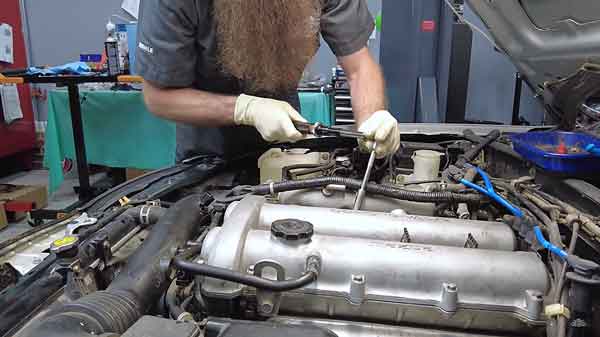
This seemingly unassuming gasket fulfills a mission-critical function in the operation of your vehicle. Its primary function is to provide an impenetrable barrier, preventing engine oil from entering the valve. This may be considered just an oil filler, but in fact it is essential to the engine’s well-being. Engine oil is the lifeblood of an internal combustion engine, acting as a lubricant for many moving parts, as well as a heat sink, ensuring that the engine does not overheat during operation
If the valve cover gasket is not sealed tightly, oil can leak in, causing a number of problems. Not only is it a waste of oil, but it can also contaminate other parts of the engine. The valve cover gasket therefore stands sentinel, guarding against oil leaks, and understanding its critical role in engine longevity and performance allows us to understand how its malfunction, through leaks, can trigger idle which is difficult, a subject we shall delve into the subsequent parts of.
How Valve Cover Gaskets Develop Leaks
Valve cover gaskets play an important role in maintaining the integrity of an engine’s internal components, but they are not corrosion resistant and over time a combination of factors can cause wear and leaks.
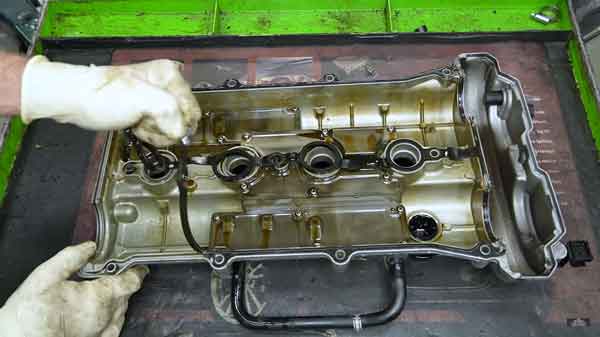
- Age And Wear: First, age and wear are the main causes of sin. Like any rubber or cork product, valve cover gaskets have a limited lifespan. As they accumulate service over miles and years, they go through natural aging. This leads to a loss of flexibility as they age, resulting in inflexibility and weakness. The resulting weaknesses can cause cracks in the gasket material, creating pathways for oil to escape.
- Extreme Heat: Second, the extreme heat generated in the engine is a formidable opposition to gasket longevity. Gasket materials harden over time due to high operating temperatures. When this happens, the gasket loses its ability to maintain a tight seal. As a result, oil can seep into the differential and seep into the engine surface, causing a number of problems.
- Improper Installation: Third, improper installation during maintenance can greatly contribute to gasket failure. If the valve cover gasket is not properly installed, with the proper torque and sealant, it cannot form a tight seal between the valve cover and the cylinder head This damaged seal can cause oil to leak and with the engine the parts interact.
- Chemical Exposure: Finally, substance abuse can be a silent aggressor. Exposure to aggressive chemicals in engine oils or additives can accelerate gasket degradation. These chemicals can weaken the gasket structure, making it more susceptible to corrosion and leakage.
Valve cover gaskets withstand harsh conditions in the engine bay, their degradation is affected by factors such as age, overheating, quality of installation, chemicals These contributing factors understanding this is important to detect and prevent valve cover gasket leaks, which can ultimately affect engine performance and longevity.
Signs of a Leaking Valve Cover Gasket
Recognizing the signs of a leaking valve cover gasket is of utmost importance for any car owner, as it acts as an early warning system that can save you from costly repairs and ensure that your engine will continue to work properly.
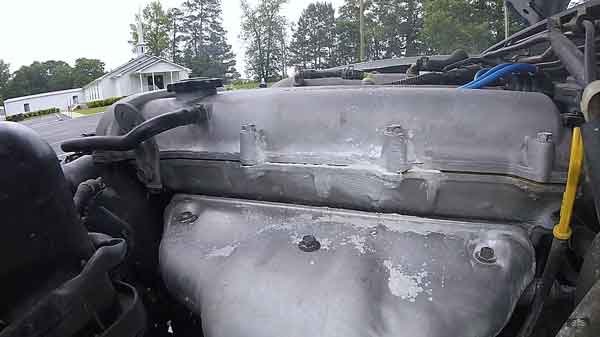
- Visible Oil Leaks: One of the most obvious signs of a valve cover gasket leak is the oil on the outside of the engine, especially in the center around the valve cover area this visible oil residue usually appears as a black, greasy deposit and not thick as you will see it when you flip the hood or check the engine. Immediate repair of this symptom is important, as leaks have not only contaminated valuable engine oil, but also pose a safety hazard by creating the risk of engine fire due to oil contact with engine parts due to the heat.
- Burning Oil Smell: The distinctive smell of burning oil is another clue. When oil leaks drip or splash on hot engine surfaces, they lose energy, creating a noticeable and unpleasant odor This odor is not only a nuisance but an indication that your engine is losing oil, and can cause you to notice and it has produced more severe consequences.
- Low Oil Levels: If you frequently need oil in your engine, it could be a sign of a common gasket leak. It is important to monitor oil levels and quickly deal with abnormal or persistent drops in oil levels to prevent engine damage due to oil starvation.
- Engine Misfires: Perhaps the most troublesome symptom is a bad engine. When oil gets into spark plugs or ignition coils, it interferes with electrical connections necessary for proper combustion. This wear and tear can lead to engine failure, where the engine’s cylinders do not fire in the correct sequence or timing. Bad conditions result in apparent inert stiffness, low power output and reduced fuel efficiency.
- Reduced Engine Performance: Finally, oil leaks can contaminate critical engine components. Mixing oil with air and fuel can block the combustion process, reducing engine performance and efficiency. This can manifest as less power, slower speeds and reduced fuel consumption.
Being alert to the common signs of a leaking valve cover gasket is essential to maintaining the health and longevity of your engine. Early detection and timely repairs can prevent further damage, improve engine performance, and provide a smooth and reliable driving experience
Can A Rough Idle Result from A Leaking Valve Cover Gasket?
Leaking valve cover gaskets aren’t just a minor problem; That can greatly affect your car’s performance and especially its idleness. The relationship between valve cover gasket leakage and sealing tightness is particularly significant in that this seemingly small leak can have far-reaching consequences
First of all, when the valve cover gasket experiences leaks, it acts as a gateway for engine oil to escape from its intended range this allows oil to get into areas of the engine where it should never go. One of the most important areas is the ignition system, which contains important components like spark plugs, ignition coils, spark plug wires, etc. While engine oil is a good lubricant, it is also a great insulator. Covering these conductors prevents them from conducting electricity properly.
The implications of this electrical barrier are significant. The ignition system which is responsible for creating a spark that ignites the air-fuel mixture in the engine’s cylinders is confused and can be damaged in the case of incompatible sparks, where one or more cylinders fail to ignite the air and fuel mixed as it should be. These inefficiencies effectively interfere with the operation of the engine, causing vibration and power output, and ultimately a severe idle when the engine is thrown off balance.
Also, the oil leaks don’t stop. It provides access to the engine intake system through the PCV (Positive Crankcase Ventilation) valve. Once inside, the oil contaminates the resulting air-fuel mixture as it enters the combustion chamber. These impurities affect the combustion, further contributing to a harder performance as the engine struggles to maintain a steady and efficient burn.
Basically, a seemingly innocent valve-cover-gacket leak can start a chain reaction in your engine, affecting the electrical and combustion systems, and eventually causing the unwanted symptom of rough the idle has occurred This accelerates the issue to keep your vehicle running smoothly and prevent possible long-term engine failure Emphasizes the importance of handling.
Consequences Of A Leaking Valve Cover Gasket
Leaking valve cover gaskets may seem like a minor concern, but their consequences extend beyond a simple oil mess. This seemingly innocent issue can have a significant impact on the overall performance of your vehicle. While the leaks are initially minor, the condition can quickly escalate, causing more problems for your engine and consequently for your driving experience.
First of all, a leaking valve cover gasket can cause engine malfunction. As oil enters the ignition system, it blocks the spark plugs, ignition coils, and spark plug wires, preventing continuous delivery of flame to the cylinders This causes uneven combustion, which is evident if it does not work it’s stiff, causing your car to vibrate and vibrate uncomfortably.
Leaks can also hurt your engine’s power output and fuel efficiency. Oil leaks can seep into critical engine components, increasing friction and improving the performance of moving parts. The result is a significant reduction in both horsepower and the engine, coupled with increased fuel consumption, which ultimately kills your wallet
Because of this potential outcome, if you suspect a valve cover gasket is leaking, it is important to intervene in a timely manner. Replacing the gasket and ensuring proper installation not only restores engine performance but also protects critical engine components from oil contamination, if maintained regularly and screening can catch such issues early, saving the hassle and financial burden of more extensive repairs in the future. Essentially, dealing with leaky valve cover gaskets is an investment in the performance and longevity of your vehicle.

